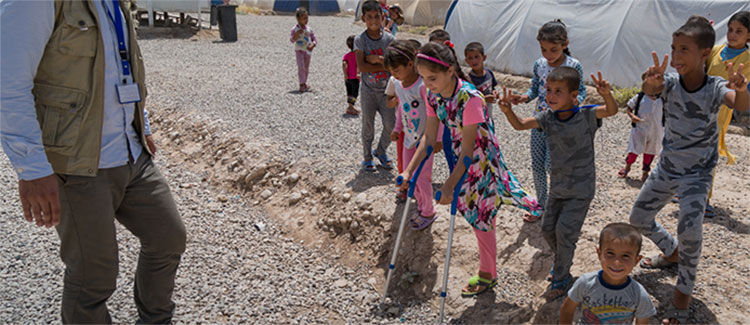The Commission has announced new measures to better tailor EU humanitarian aid to persons with disabilities caught up in crisis situations. From now on EU funded projects will cover the needs of persons with disabilities in a more structured way.
Concretely, the Commission, together with groups working with people with disabilities and humanitarian organisations, will develop standards that need to be met in all EU humanitarian projects. The Commission’s humanitarian funding will, for the first time, require humanitarian partners to include people with disabilities in their projects.
Organisations representing people with disabilities will also be regularly consulted in the design of Commission policies and those with disabilities will have greater input in operations on the ground.
The announcement comes as Commissioner for Humanitarian Aid and Crisis Management Christos Stylianides speaks today at the 4th European Parliament of Persons with Disabilities (EPPD) event. “People with disabilities suffer disproportionately in crisis situations. Unfortunately, we have also seen all too often that persons with disabilities cannot access the most basic services offered by humanitarian organisations. Making EU humanitarian response more disability-inclusive remains our priority.” said Commissioner Stylianides.
In the past two years, €30 million were allocated for projects undertaken by disability-specific organisations – increasing funding by 40% since the start of Commissioner Stylianides’ mandate in 2014. EU has endorsed the Charter on Inclusion of Persons with Disabilities in Humanitarian Action, launched at the World Humanitarian Summit in May 2016. The EU has also ratified the UN Convention on the Rights of Persons with Disabilities which foresees the protection and safety of persons with disabilities in situations of risk, including situations of armed conflict, humanitarian emergencies and the occurrence of natural disasters.



